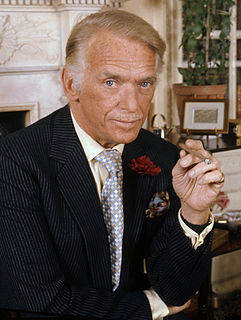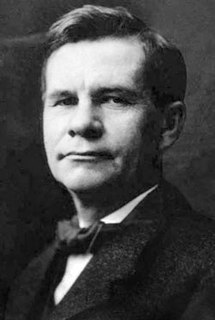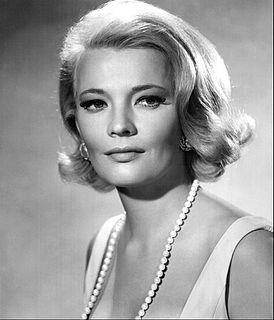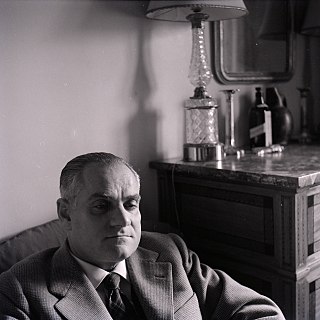A Quote by Douglas Fairbanks, Jr.
I will never forget the pleasure and instruction I derived from working with a true master of his art, such as Edward G. Robinson was - and is. Surely his record for versatility, studied characterization - ranging from modern colloquial to the classics - and artistic integrity is unsurpassed.
Related Quotes
The master in the art of living makes little distinction between his work and his play, his labor and his leisure, his mind and his body, his information and his recreation, his love and his religion. He hardly knows which is which. He simply pursues his vision of excellence at whatever he does, leaving others to decide whether he is working or playing. To him he's always doing both.
Put crudely, one is left with a choice between two unsatisfactory combinations: artistic integrity married to spiritual compromise; and spiritual integrity married to artistic banality-or, worse, art compromised on both counts. Neither one will satisfy those who recognize the fundamental necessity of integrity in both faith and art.
I play Edward G. Robinson [in Trumbo], who was a close friend and a co-worker of Dalton's [Trumbo]. They worked together on at least one or two screenplays. A lot of these stories take famous people and show you who they are behind the scenes, which is kind of fun. One of the things about getting to play Edward G. Robinson was learning who the man was away from his movie-star exterior.
It should be the privilege of every worker to take advantage of all the improved methods of working that relieve him from the tedium and fatigue of purely mechanical toil, for by this means he gains leisure for the thought necessary to working out his designs, and for the finer touches that the hand alone can give. So long as he remains master of his machinery it will serve him well, and his power of artistic expression will be freed rather than stifled by turning over to it work it is meant to do.
I got a part opposite Edward G. Robinson in a play called Middle of The Night, which Paddy Cheyafsky had written. It played for a long time because everybody just loved Edward G. Robinson, everybody in New York wanted to see it. John and I were married at the time and put into a position where I was working very long evening hours and he was working in the daytime and so there was a lot of spare time.
A writer never forgets the first time he accepted a few coins or a word of praise in exchange for a story. He will never forget the sweet poison of vanity in his blood and the belief that, if he succeeds in not letting anyone discover his lack of talent, the dream of literature will provide him with a roof over his head, a hot meal at the end of the day, and what he covets the most: his name printed on a miserable piece of paper that surely will outlive him. A writer is condemned to remember that moment, because from then on he is doomed and his soul has a price.
THE SUFFERING OF GENIUS AND ITS VALUE. The artistic genius desires to give pleasure, but if his mind is on a very high plane he does not easily find anyone to share his pleasure; he offers entertainment but nobody accepts it. That gives him, in certain circumstances, a comically touching pathos; for he has no right to force pleasure on men. He pipes, but none will dance: can that be tragic?
Give yourself unto reading. The man who never reads will never be read; he who never quotes will never be quoted. He who will not use the thoughts of other men’s brains, proves that he has no brains of his own. You need to read. . . . We are quite persuaded that the very best way for you to be spending your leisure time, is to be either reading or praying. You may get much instruction from books which afterwards you may use as a true weapon in your Lord and Master’s service. Paul cries, “Bring the books” — join in the cry.
The real master is only a presence. He has no intentions of being a master. His presence is his teaching. His love is his message. Every gesture of his hand is pointing to the moon. And this whole thing is not being done, it is a happening. The master is not a doer. He has learned the greatest secret of life: let-go. The master has drowned his ego and the idea of separation from existence itself.




































